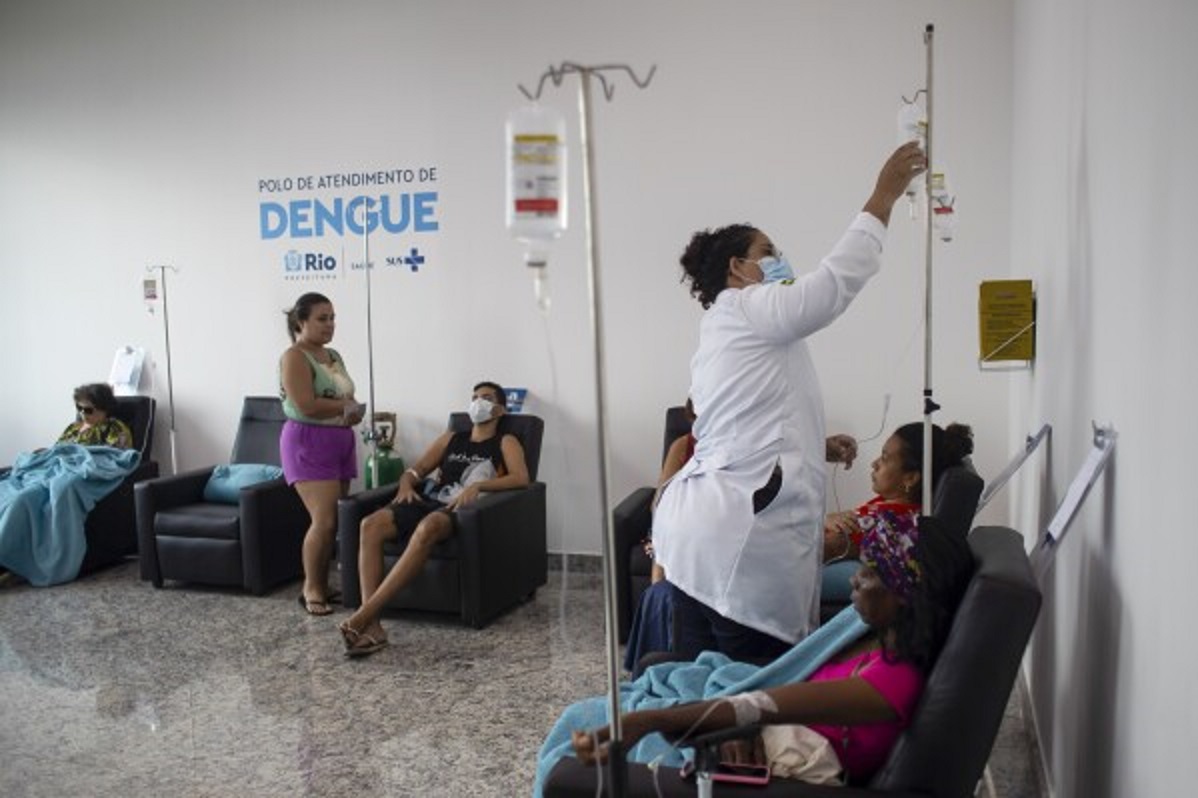
Niteroi, Brazil, offers a beacon of hope in the fight against dengue fever, with innovative strategies like the Wolbachia program. While Rio de Janeiro grapples with a public health emergency, Niteroi’s proactive measures have significantly reduced dengue cases. Through partnerships with research institutions and government agencies, Niteroi has implemented comprehensive prevention efforts, including breeding mosquitoes carrying Wolbachia bacteria. The success of Niteroi’s approach has garnered national attention, prompting plans for scaling up production of Wolbachia-carrying mosquitoes. This collaborative effort highlights the importance of innovative solutions and community engagement in combating mosquito-borne diseases.
In the face of a dengue fever outbreak that led Rio de Janeiro to declare a public health emergency, the city has taken swift action. Bolstering testing capabilities, establishing numerous dengue health centers, and providing comprehensive training for medical personnel, Rio is mobilizing to meet the escalating needs of its residents. However, just across Guanabara Bay lies Niteroi, a sister city to Rio, where the situation presents a stark contrast. Despite housing around half a million inhabitants, Niteroi has reported a mere 403 suspected cases of dengue this year, boasting one of the state’s lowest incidence rates at 69 confirmed cases per 100,000 people. This stands in sharp contrast to Rio’s staggering incidence rate of 700 cases per 100,000 people, with over 42,000 confirmed cases.
Dengue, a virus transmitted through infected mosquitoes, poses a significant public health threat. Yet, there’s a beacon of hope in the form of Wolbachia bacteria, which can impede the transmission of the disease. In Niteroi, a pilot program initiated in 2015 has seen scientists breeding mosquitoes carrying Wolbachia, effectively aiding the city’s battle against dengue. This innovative strategy, pioneered by the World Mosquito Program, offers a promising alternative amid a concerning global trend highlighted by a tenfold increase in reported dengue cases over the past generation, as warned by the U.N. health agency.
Niteroi’s Mayor Axel Grael recounts the city’s response to the 2012 dengue epidemics, a period marked by thousands of notifications and tragic fatalities. Seeking assistance, Niteroi forged partnerships with esteemed institutions like the state-run Fiocruz Institute, the World Mosquito Program, and the Health Ministry. Since adopting the Wolbachia technique, the city has witnessed a notable decline in dengue cases, underscoring the effectiveness of this innovative approach.
Dengue thrives in environments characterized by frequent rainfall and high temperatures, conditions that are prevalent in Rio de Janeiro. Despite Niteroi’s relatively low case count, the city remains committed to prevention efforts. Daily, scores of health workers traverse neighborhoods, diligently inspecting areas prone to stagnant water, the breeding ground for mosquitoes.
Navigating the labyrinthine alleys of Niteroi’s favelas, health workers like Augusto Cesar confront unique challenges in their mission to eliminate mosquito breeding sites. Every nook and cranny is meticulously examined, emphasizing the critical importance of eradicating even the smallest potential breeding grounds, such as discarded plastic bottle caps.
However, the battle against dengue isn’t without its hurdles. Luciano Moreira, a researcher at Fiocruz, highlights security concerns, particularly in areas controlled by drug traffickers or militias, which can impede access to public health initiatives.
Despite these challenges, the success of Niteroi’s Wolbachia program has garnered widespread attention. Municipalities across the country are eager to adopt similar strategies, prompting the Brazilian Health Ministry’s announcement of plans to construct a large factory dedicated to breeding Wolbachia-carrying mosquitoes. With the capacity to produce 100 million eggs per week, this ambitious initiative signifies a significant step forward in the fight against dengue on a national scale.
Niteroi’s proactive approach to combating dengue fever serves as a testament to the effectiveness of innovative strategies in public health. By leveraging initiatives like the Wolbachia program and fostering collaboration between stakeholders, Niteroi has significantly reduced dengue incidence rates. As other municipalities look to replicate Niteroi’s success, it underscores the importance of investing in research, community engagement, and proactive measures to mitigate the impact of mosquito-borne diseases. Niteroi’s journey serves as an inspiration for communities worldwide in the ongoing battle against dengue and other infectious diseases.
